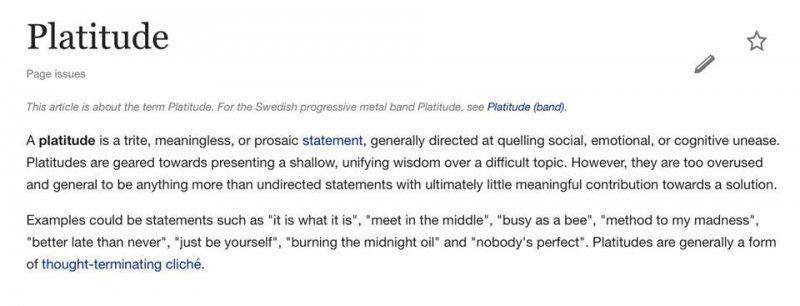I think that there is a tendency within spiritual circles to generalize a lot of the spiritual sounding terms without thinking through and clearly defining what each one means, nor understanding the reasoning behind them. For instance, “unity” is often used as an ideal, but is it being referenced as an internal locus of control unity or external locus of control unity? Ego death is a mine field that can mean 100 different things to 100 different people (I prefer ego integration to describe my desired goal). Even so, very few people know and understand what ego death (or integration) actually means, or its implications.
Karma is another one; to many it is some mystical and cosmic system of rewards and punishment, but it is simply the hermetic principle of cause and effect. To say we have rid ourselves of our karma is to say that we no longer need to deal with causality. No more causality means we have no more logic or understanding, and no more “reason” to be or do anything. We can master karma (causality) by becoming 100% cause of our lives, but it doesn’t simply vanish with transcendence. To imply that karma can vanish is to ignore one of the core foundations of logic – logic that upholds the very fiber and nature of our Universe.
Platitudes and generalities sell to, and easily unite, mass amounts of people simply because they can mean something different to each person. There’s a good reason why platitudes lack clarity, precision, accuracy, relevance, depth, breadth, logic, and fairness — they wouldn’t appeal to nearly as many people if intellectual standards were applied to them. This is one reason why we really try to uphold intellectual standards with our writing, and is also one reason why our writing may not appeal to as many people – simply because it’s only for those who resonate with the very specific things we’re saying. I’d rather have people following our insights because they are clear, precise, accurate, relevant, deep, wide, logical, and fair minded, than have a lot of people follow us because we tickle their ears with vague generalities and platitudes.
